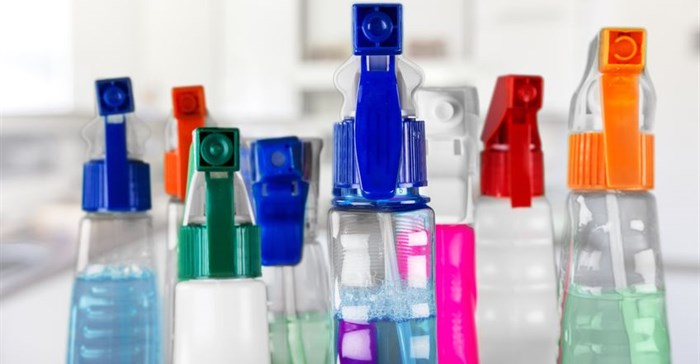
Top stories


Logistics & TransportIata urges global safeguards for aircraft systems as 5G/6G rollout continues
16 hours

AgricultureAgricultural exports from Africa are not doing well. Four ways to change that
Lilac Nachum 17 hours



In this instance, knowledge truly is power – especially when it comes to reading between the marketing material lines to determine whether or not green cleaning products are truly green. Usually, companies that sell ‘green’ cleaning products position these items within one of four categories: probiotic products, enzymatic products, bacterial products (biological), or essential microorganism products (microbes and their metabolites).
While probiotics are certainly good for your gut health, they do not make the best cleaning products. These are friendly bacteria that live in the intestines, promote healthy digestion and eliminate pathogens, other bacteria and viruses. Yes, these probiotics do produce many different kinds of enzymes (beneficial to the human body) – but outside of the body, they do not produce enough enzymes to degrade organic waste, making them ineffective in cleaning products.
Bacterial products, on the other hand, utilise these single-celled organisms that have the ability to reproduce by simple cellular division. When using the correct bacteria, nutrients in the environment are recycled, as organic matter is broken down into simple compounds such as carbon dioxide and water. These are the only products that can naturally penetrate the bad bacteria’s biofilm, which forms a protective layer against other chemical cleaners.
Enzymes, which are produced by bacteria, are proteins that act as catalysts, thereby accelerating the rate of reaction with a substrate. Enzymes are substrate specific, meaning that different enzymes can be put into particular products in order to clean distinctive kinds of dirt. It is important to note that enzymes are not living things, therefore they cannot adapt to different conditions. In contrast, bacteria are living organisms that adapt to their environment and produce specific enzymes that break down organic matter, such as fats, oils, cellulose, xylan, proteins and starches.
As a result of this, and the short lifespan of an enzyme, living bacteria is preferred in products, as it constantly produces fresh enzymes; however, some cleaning products can be ‘boosted’ by adding a certain amount of prepared enzymes to the product to begin degrading the organic matter. While these enzymes die out, the bacteria present reproduce, creating more enzymes to continue the cleaning process.
Essential microbes, or Effective Microorganisms (EM) is a brand name referring to a family of microbial-based products using a technology developed by Japanese scientist, Dr Teruo Higa. The main product, EM·1, is a liquid bacterial product comprising three groups of microbes: yeast, photosynthetic bacteria, and lactic acid bacteria.
EM·1 works together with local and native beneficial microbes, creating a synergy among microorganisms and larger forms of life including: insects, worms, pets, livestock, and people. All the formulations and intellectual property are owned and managed by EM Research Organisation in Okinawa, Japan (EMRO). However, when claiming green product status, it is highly likely that EM is non-functional as a cleaning agent, due to the fact that no enzymes are release to degrade the organic soil. As such, cleaning is achieved through the chemical-based surfactants at work, which are not considered eco-friendly.
It is clear that a carefully calculated combination of bacterial strains (considered beneficial microorganisms) and added enzymes, each selected for its efficiency at degrading certain waste materials, is the winning formula in green cleaning. When used correctly, these products are completely safe and effectively tackle the wide variety of compounds found in the waste system.
